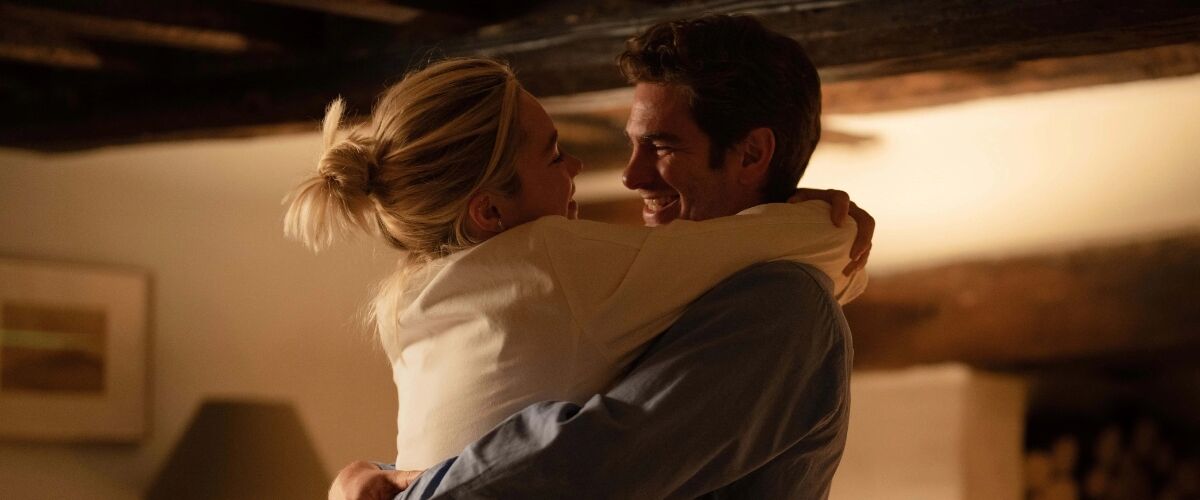Director John Crowley (The Goldfinch) has a knack for finding the extraordinary within the ordinary. He imbues his films with a quiet grandeur, transforming seemingly simple love stories into sweeping epics that resonate with emotional depth and human complexity. His directorial prowess shone brightly in the Oscar-nominated Brooklyn (2015), transforming a story of romantic choice and immigrant identity into a poignant exploration of life’s pivotal moments.
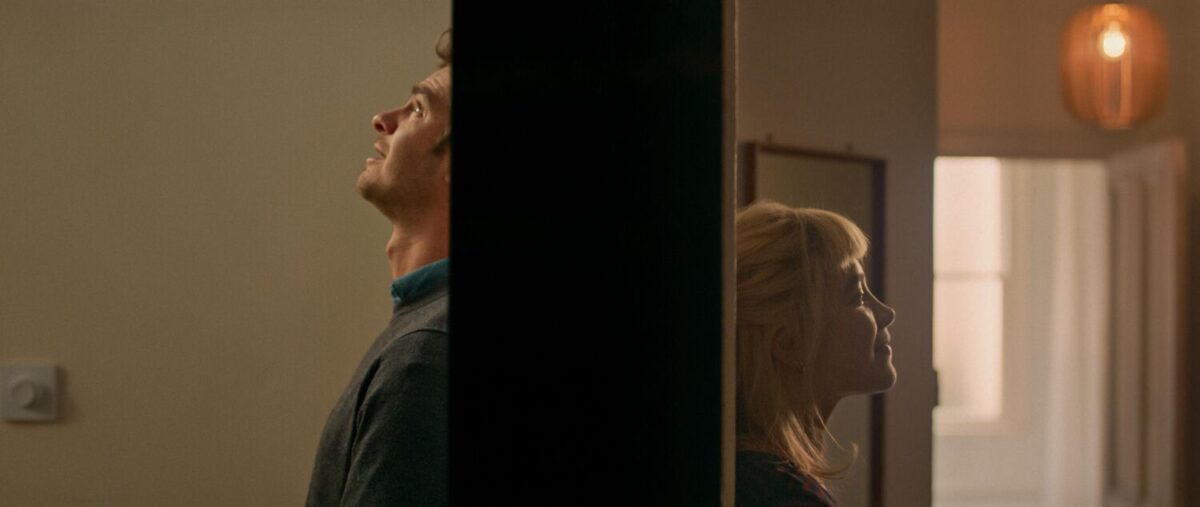
Other prior collaborations, such as Andrew Garfield’s (The Amazing Spider-Man, Hacksaw Ridge) film debut in Boy A (2007), showcased Crowley’s ability to handle themes of redemption and societal reintegration with a delicate yet impactful touch, setting the stage for future endeavours that blend the personal with the profound. In his latest film, We Live in Time, Crowley not only reunites with Garfield but also tackles the deeply personal and intricate journey of love once again, this time through a non-linear narrative that spans a decade.
The narrative, crafted by Nick Payne, who is known for his non-linear storytelling in BBC One’s Wanderlust (2018), attempts to explore the relationship dynamics between Almut Brühl (Florence Pugh, Black Widow, Oppenheimer) and Tobias Durand (Garfield) through a series of disjointed time jumps that aim to elevate the emotional impact of their journey together.
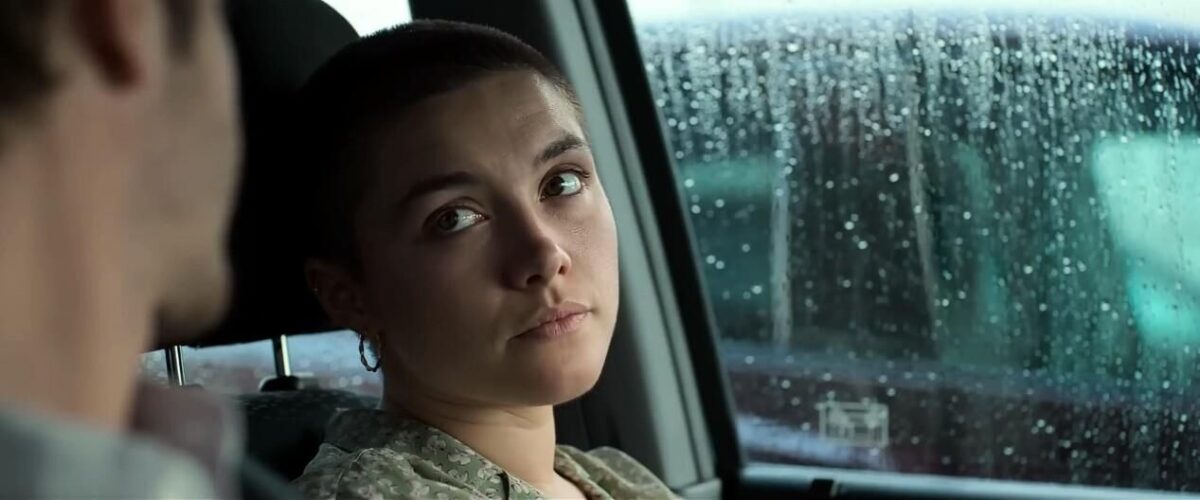
From the onset, the film thrusts viewers into the midst of the couple’s life with rapid shifts across various pivotal moments across the years. One moment we witness Almut, a driven and talented chef, excitedly sharing her latest culinary creation with Tobias, a reserved IT specialist at cereal company Weetabix. In the blink of an eye, we’re thrust into a hospital room where the couple grapples with Almut’s cancer diagnosis. The narrative then abruptly shifts to a whimsical recount of their unconventional first meeting – Almut accidentally hitting Tobias with her car – before diving back into heavier themes, such as battling Almut’s illness and coping with the recurring uncertainties of her prognosis.
While ambitious in its storytelling, the film’s rapid pacing and constant time shifts may hinder audiences from fully connecting with the couple’s emotional journey. Each segment, rich with potential for deeper exploration, is briskly interrupted by another leap in time, preventing us from fully experiencing the weight of the characters’ joys and sorrows. This structure, though reflective of the fragmented nature of memory and emotion, often detracts from rather than enhances the narrative cohesion.
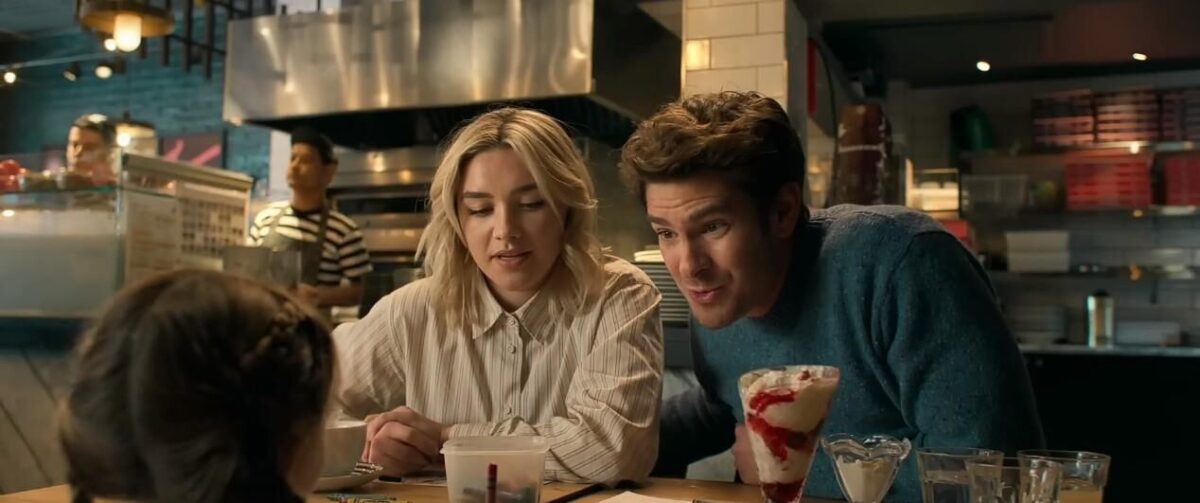
Despite the film’s fragmented structure, we do glean glimpses into the ebb and flow of Almut and Tobias’ connection, especially when they encounter the challenges of navigating Almut’s illness and differing desires for a family, which ultimately results in the eventual arrival of their daughter Ella (Grace Delaney) in a surprisingly graphic delivery scene. Thankfully, We Live in Time doesn’t shy away from portraying the raw and honest – sometimes explosive – moments that define a long-term relationship.
It’s in these moments that We Live in Time truly shines. Pugh and Garfield, both at the top of their game, deliver captivating performances that breathe life into these complex characters. Their chemistry is undeniable, igniting the screen with fiery passion in intimate moments and grounding their connection with playful banter and genuine affection. Pugh, known for her intensity and bold vulnerability, perfectly complements Garfield’s gentle and tenderhearted demeanour. This dynamic, evident from their first meeting, remains a driving force throughout the film, anchoring the narrative even when the fragmented timeline threatens to derail it.
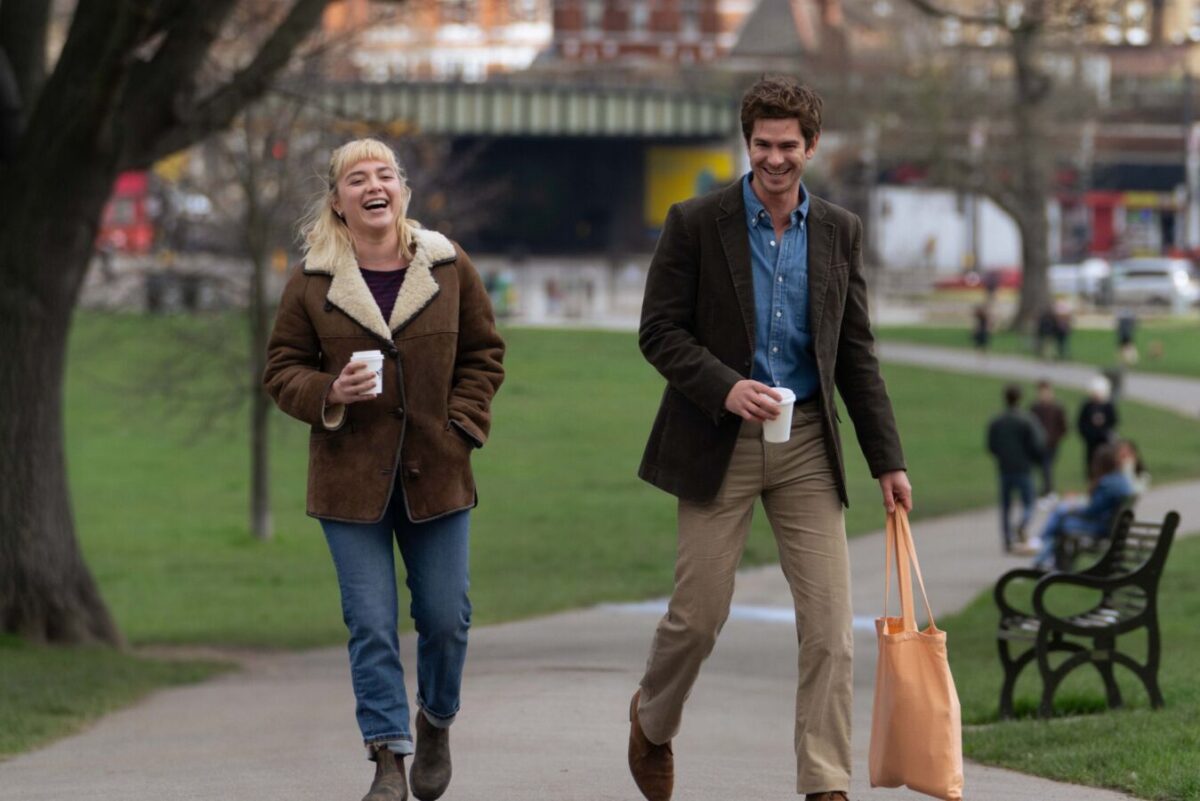
Both Pugh and Garfield have dabbled in romance before, but We Live in Time offers them a canvas to explore the full spectrum of a long-term relationship, from the initial spark of attraction to the depths of commitment and the challenges of facing life’s uncertainties together. It’s a joy to witness these two Academy Award-nominated actors showcase their range in a film that celebrates these complexities of love and loss.
And it’s Garfield who often carries the emotional weight of the film. Crowley, recognising Garfield’s talent for conveying vulnerability, expertly utilises his expressive face to exude a range of emotions with remarkable subtlety. Whether it’s a flicker of bewilderment, a flash of anger, or the quiet sorrow of watching a loved one struggle, Garfield’s performance is a masterclass in understated emotionality.
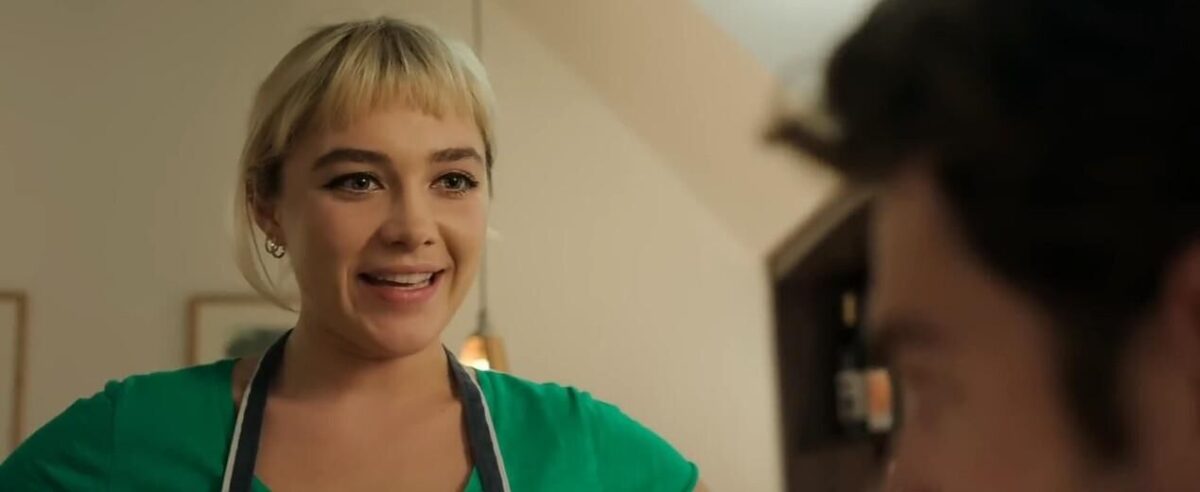
While Garfield’s nuanced portrayal anchors the film’s emotional core, the narrative itself begins to falter as it becomes increasingly convoluted. Almut’s character, in particular, is burdened with an excessive amount of baggage – a childhood figure skating career, a second cancer diagnosis, and a series of dramatic confrontations with family members – that ultimately dilutes the film’s emotional impact. This overstuffed narrative pushes Tobias’ story to the sidelines, reducing him to a mere supporting player in Almut’s personal drama.
Had the film allowed their relationship more room to breathe and embraced a less jarring timeline, its emotional impact could have been truly profound. Instead, We Live in Time‘s ambitious narrative structure might leave audiences more puzzled than moved, yearning for a more linear path through the couple’s shared life that might have allowed for a deeper emotional investment. While Crowley’s film is a thought-provoking experiment in storytelling, it ultimately serves as a reminder that sometimes a more traditional, straightforward approach can better serve the heart of a poignant love story.
GEEK REVIEW SCORE
Summary
We Live in Time offers glimpses of brilliance, thanks in large part to the undeniable chemistry between Florence Pugh and Andrew Garfield. Sadly, if the film had embraced a less jarring timeline, its emotional impact could have been truly profound.
Overall
7.1/10-
Story - 6.5/10
6.5/10
-
Direction - 6/10
6/10
-
Characterisation - 8.5/10
8.5/10
-
Geek Satisfaction - 7.5/10
7.5/10

